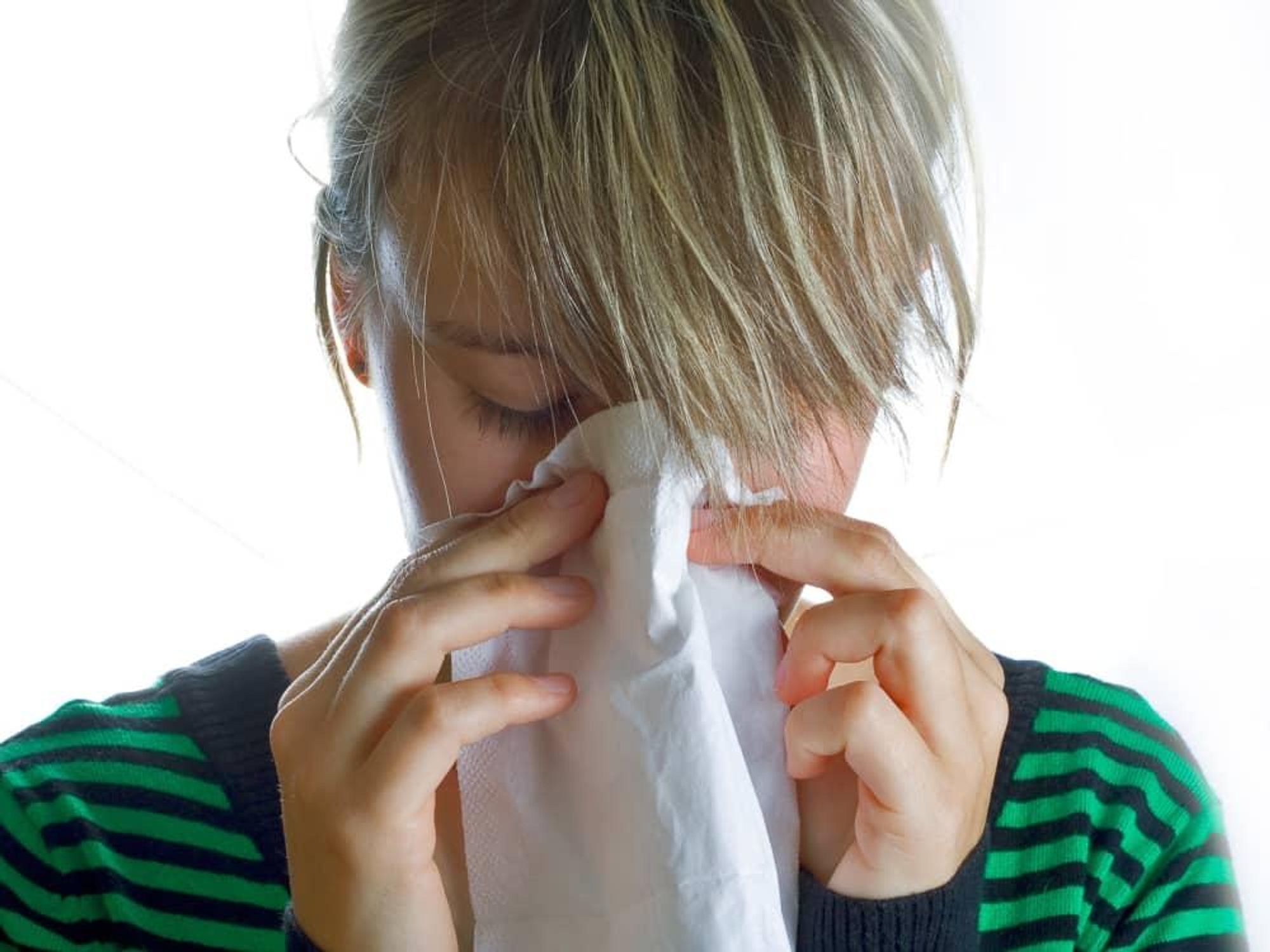Cedar Fever
How to survive cedar fever: 6 remedies to help you kick allergies to the curb

'Tis the season ... and no, we're not talking about the holidays. Cedar season is upon us and a chorus of sneezes and sniffles can be heard ringing through the halls like Christmas carols.
For Austin allergy sufferers, now is the time to start thinking about combating allergies — and that doesn't mean chopping down all the cedar trees in the area. The fact that we are allergic to "cedar" is actually a misconception. The tree this bothersome pollen comes from is juniper, often referred to as "Ashe Juniper" or — wait for it — "Mountain Cedar."
No matter what you call it, "cedar" allergies are hard to fight. "A lot of people think that allergies are a result of a weak immune system. Your immune system is actually strong and overreacting to these substances," explains Dr. Allen Lieberman, physician at the Allergy and Asthma Center of Austin. In response to this pollen invader, your body brings out all its best defenses to get rid of it — including a runny nose and watery eyes.
Taking over-the-counter medications will usually treats symptoms, but they can often leave you in as much of a haze as the allergies themselves. Here are some natural alternatives for your arsenal against cedar fever and other seasonal allergies, from the medicinal to the nontraditional.
Massage
Myo Massage — lymphatic drainage massage ($40 and up)
Your lymphatic system is a collection of nodes and vessels inside your body that helps defend your immune system. The lymphatic drainage massage from Myo Massage helps clear your lymphatic system and improve circulation, thus assisting with allergy relief. This technique centers around the light massage of your lymph nodes, which are prone to storing up liquid and, subsequently, any allergens or other nastiness that the lymphatic system is trying to flush out of your body.
With 30-minute sessions starting at $40, it's worth a try — especially if your allergy symptoms include sinus pressure. Take a look at a few "how to" videos for lymphatic drainage massages to get an idea of whether this is the kind of relief you need.
Acupuncture
Kettering Acupuncture — allergy-specific acupuncture (prices vary)
If you're looking for something a little more than skin deep, Kettering Acupuncture in Shoal Creek offers acupuncture treatment designed for allergy-suffering Austinites. An average treatment plan begins with weekly sessions and a combination of Chinese herbs, but all clients are treated according to their specific needs and symptoms.
"When you come in, we treat your constitution, which is your individual make up," says Yvonne Perez Kettering, a licensed acupuncturist and founder of Kettering Acupuncture. "Then we also treat symptomatically, which could mean itchy eyes, watery nose — whatever it is that's bothering you."
An acupuncturist's approach to treating allergies is based in the belief that there is an imbalance in the body. "In Chinese medicine, Wei Qui is what we call your protective energy," says Kettering, inviting us to picture a force field. This energy helps keep you in good health and keeps the allergens away from your body. For those who might be weary of acupuncture or its effectiveness, Kettering says, "Just try it. What else do you have to lose but your allergies?"
Herbal supplements
Tiny Taiga — Herbalogic Easy Breather ($26.95-$28.95)
Herbal supplements can help control (or sometimes completely eliminate) the symptoms of allergies and are a more natural alternative to OTC medication. Tiny Taiga on East 11th Street offers Herbalogic Easy Breather in tincture and pill form ($26.95-$28.95). This supplement is designed to help ease any irritation you might have in your respiratory system and give your immune system a hand. "Everything is about boosting the immune system and supporting the immune system," says Blake Shanley, owner of Tiny Taiga.
Shanley emphasizes that your immune system is the key for allergy relief. Although herbal supplements focus on the alleviation of symptoms, your immune system is the one that's dealing with the allergies directly, and it can use as many reinforcements as it can get. That's why Shanley suggests adding things such as vitamin C, vitamin B complex, apple cider vinegar and super foods into your daily routine.
According to Shanley, another factor to consider when trying to manage your allergies is your diet. Even though most of us experience respiratory symptoms, what we eat can affect how our bodies react to allergens. "Try to avoid things as much as possible like dairy wheat, sugar and things that create mucus in the body," she advises.
Pollen serum
The Herb Bar — BioStar Botanicals Cedar Serum ($16), Herb Bar blend ($18)
The Herb Bar has a variety of herbal supplements designed specifically for aiding your body against Austin-specific allergens. Evie Carr, wellness adviser, turns to the BioStar Botanicals Cedar Serum ($16) at this time of year, a tincture that has become an must-have for many Herb Bar patrons during cedar season. There's also a special Herb Bar blend with local pollen extracts ($18) to assists with overall allergy relief.
But if tinctures and sprays aren't your thing, other suggestions include nettle tea, olive leaf extract, herbal pills and warming essential oils to open your nasal passages — it all depends on what you think you can commit to on a daily basis. "Are you a tea drinker? Or are you a pill taker? What will you do every day?" Carr asks customers.
Allergy shots
Allergy and Asthma Center of Austin — allergy shots (prices vary)
If your allergies are so bad that antihistamines and supplements aren't doing the trick, you might want to consider allergy shots. Allergy shots include a months long regimen of regular immunotherapy treatment designed to slowly help your body respond to allergens appropriately. At the Allergy and Asthma Center of Austin, nurses and physicians identify exactly what's causing symptoms through an allergy test, build a natural serum consisting of glycerin (a simple sugar compound) with extracts of specific allergens, and administer it through a series of shots.
Allergy shots are designed to slowly help your body become more tolerant to your specific allergens and, as Lieberman says, it can help "turn the allergic switch off." For most people it takes a while to experience significant relief. "We usually tell people it will take four to six months," he explains.
However, allergy shots aren't for everyone. "People who are candidates for shots are the people who have tried everything out there and are still miserable," says Lieberman. If you can manage your symptoms with antihistamines, nasal sprays, eye drops and other simple OTC options, then allergy shots are not for you.
Allergy drops
Texan Allergy — allergy drops (prices vary)
Allergy drops are a liquid form of immunotherapy administered under the tongue rather than through a shot. Texan Allergy offers allergy drops as an alternative if scheduling — or a fear of needles — makes taking regular shots difficult.
Although the serum used for allergy shots and drops is essentially the same (sugar compound and allergen extracts), it should be noted that allergy drops have not been approved by the FDA. However, allergy drop users claim that the treatment is just effective administered under the tongue as it is under the skin.
Unfortunately immunotherapy, whether through allergy shots or drops, does not offer the best relief for this cedar season. "My advice will be to go get an allergy test as soon as possible, start immunotherapy [as soon as possible], be compliant in your therapy and be ready for the next season. As for our current season, it is too late now to start immunotherapy," says Miguel Munoz, clinical director at Texan Allergy.
Other remedies
Here are a few things to consider if you're looking to get your immune system in gear or need natural relief quick.
Greens. Getting your veggies in can be extremely helpful for your immune system. Try the cold-pressed green juices from Daily Greens. The Rejuvenate option ($8.65) includes turmeric root, which is a natural anti-inflammatory, and a bunch of other green goodies high in vitamins C and B.
Antioxidants. If you need something a little less green, go with fruits. Try The Antioxidant ($5.75-$7.25) from The Juice Bar. This special combo mixes grape, blueberry, strawberry and acai, all of which are naturally high in antioxidants.
Nasal irrigation devices. Neti pots, which you can purchase at most grocery stores and pharmacies, help you flush allergens out of your nasal passages by using a simple saline solution. This can provide near instant relief from sinus pressure and is gentle enough to use multiple times a day.
Spicy food. Similar to nasal irrigation, eating spicy foods can sometimes induce a runny nose and get rid of those pesky allergens. But, please, don't snort your Yellowbird Sauce.
Probiotics. Probiotics can help boost your immune system and fight off anything else that might be trying to weasel its way in. Probiotics can be found in yogurt, kombucha and in easy-to-take pill form at most grocery stores and pharmacies.
Don't put too much stock into local honey. Local honey can help your body become more accustomed to the allergies in your area, however it only works with pollen that is distributed by bees. And as we're so fond of watching YouTube videos of exploding juniper trees, you might already know that the "cedar" pollen is distributed through the air and not by bees.
